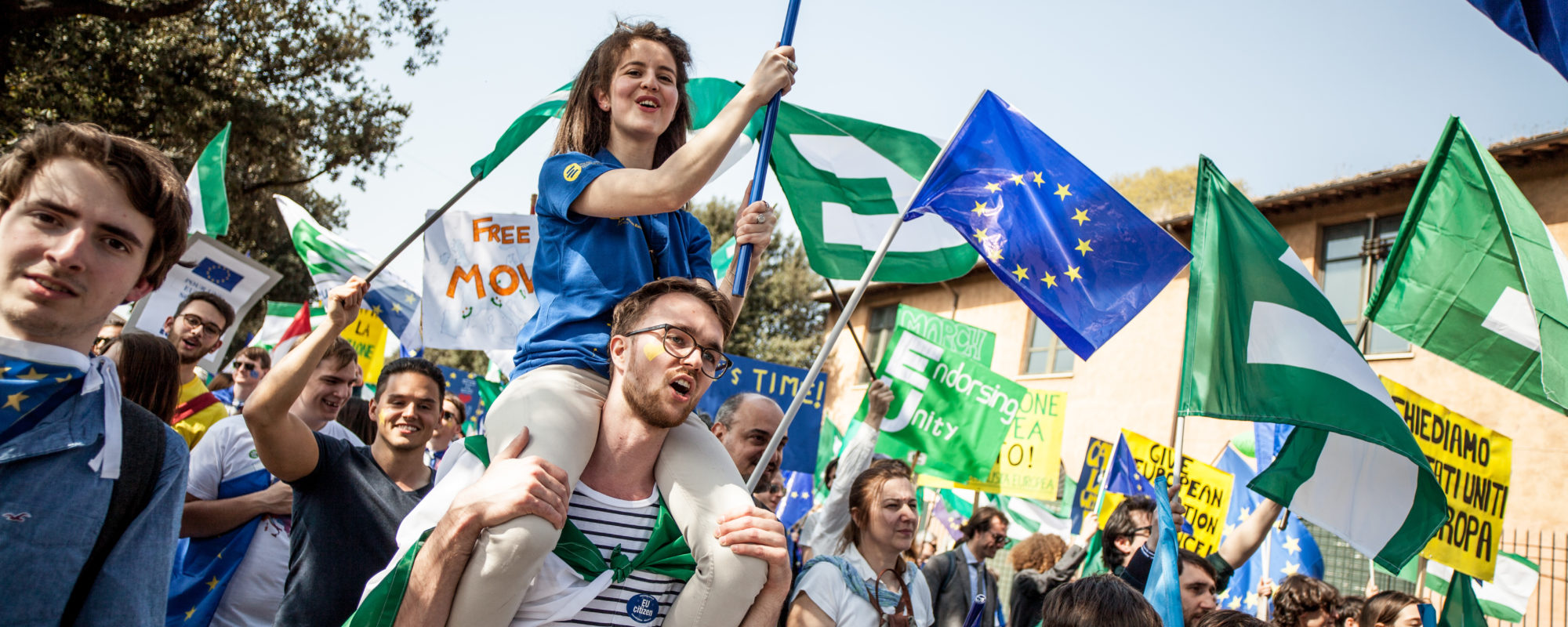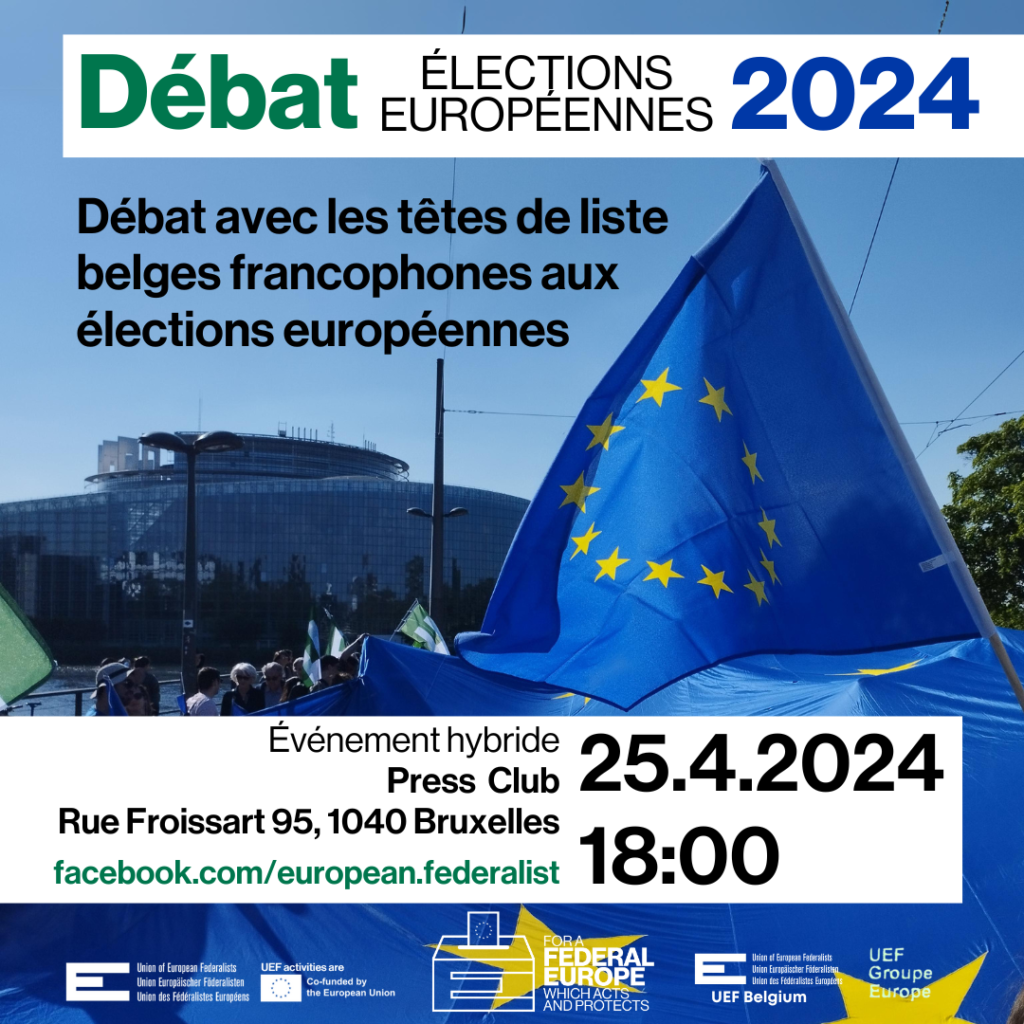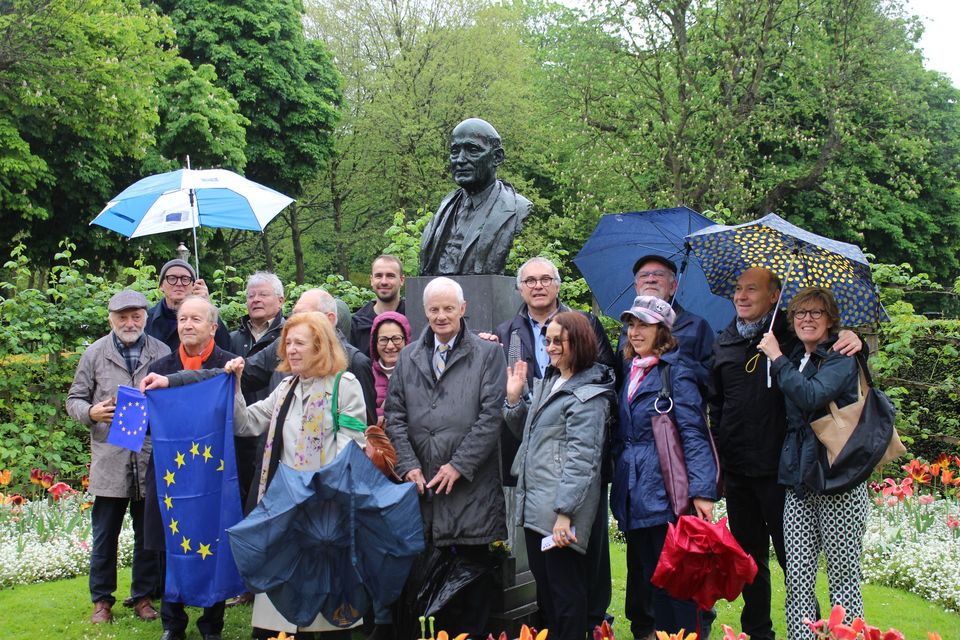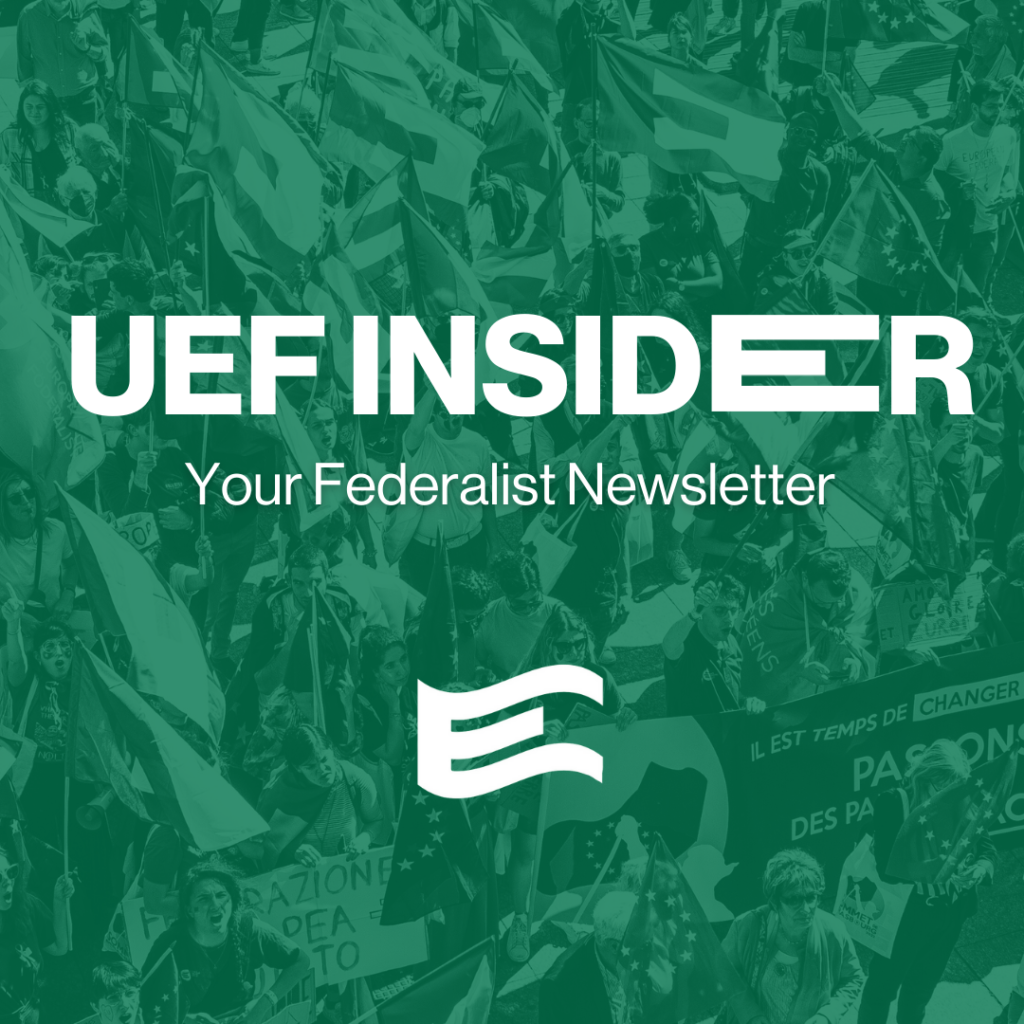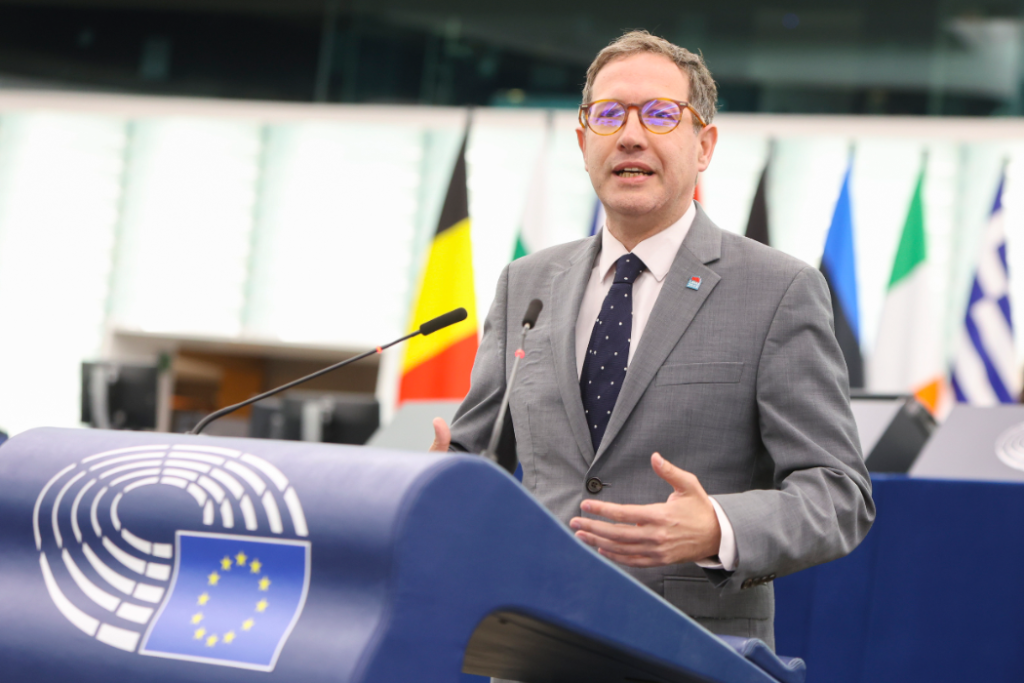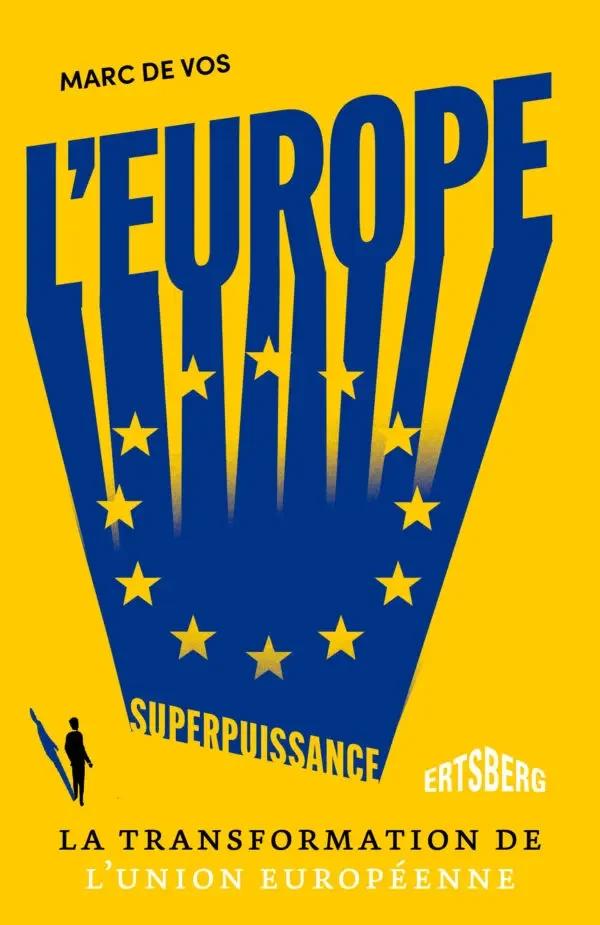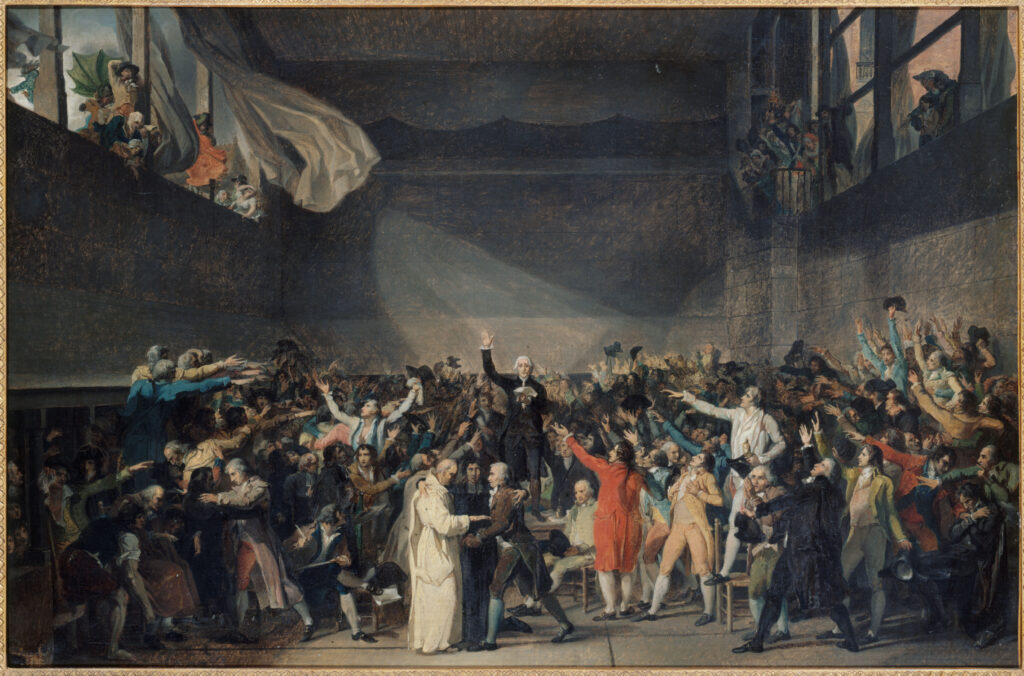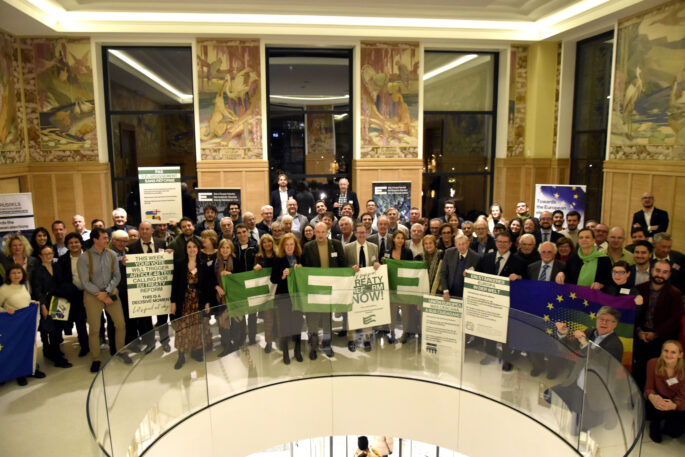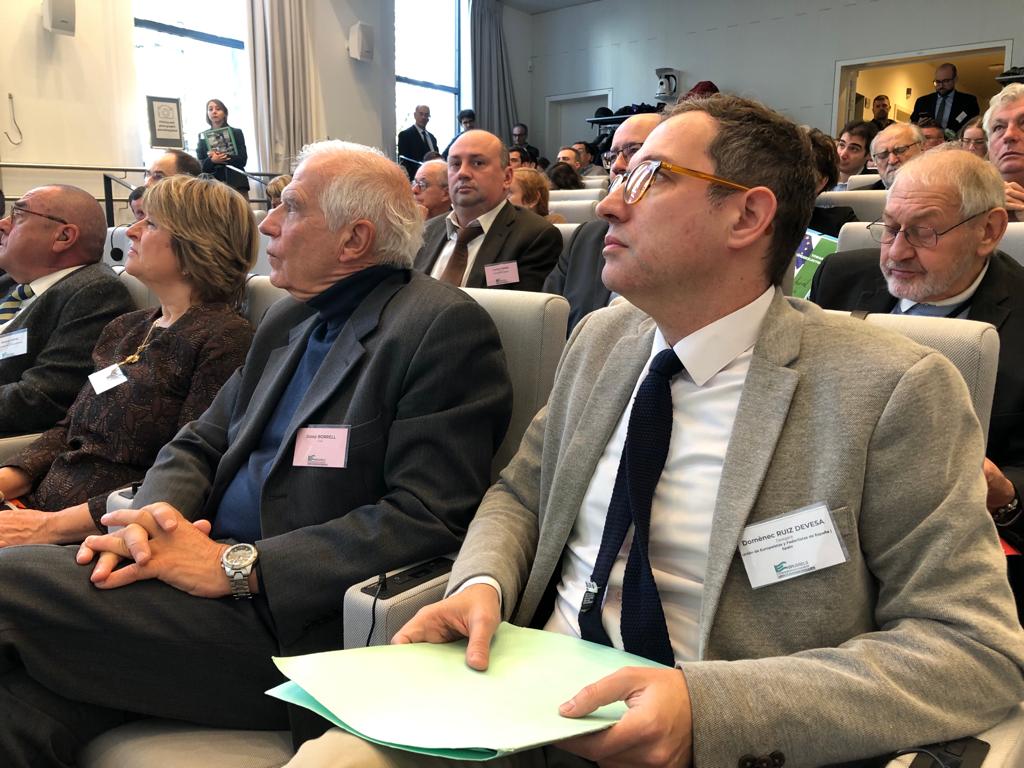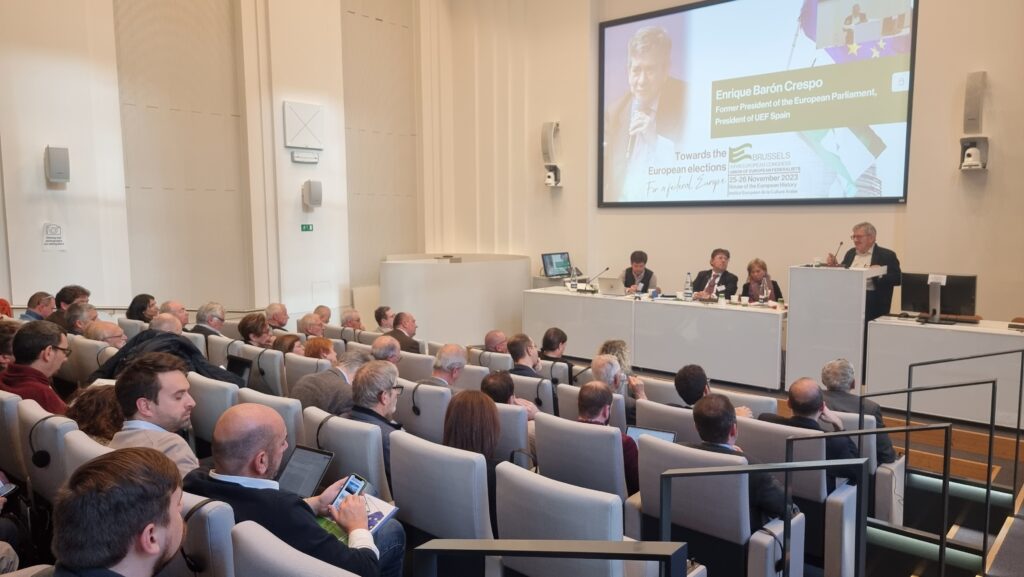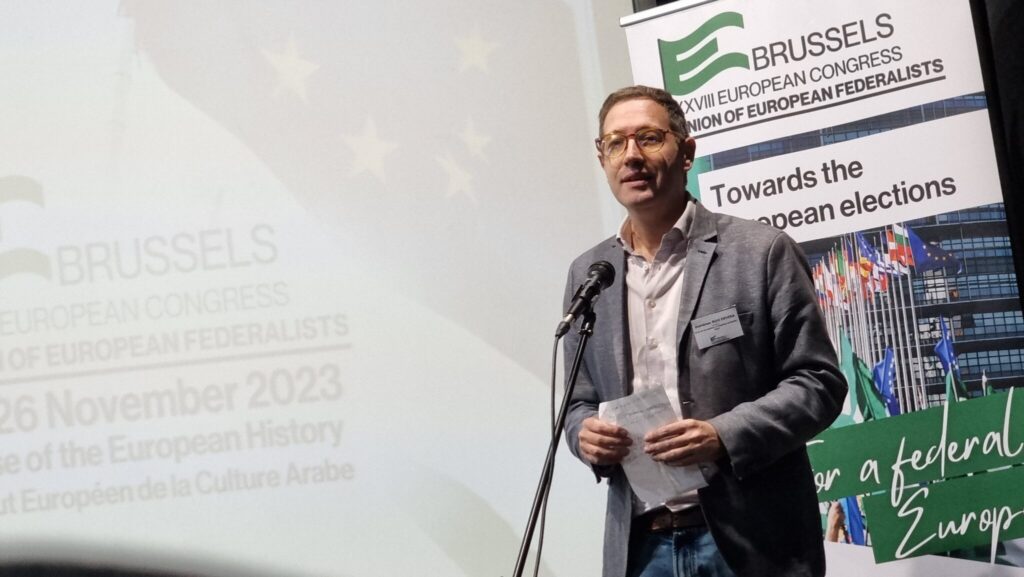Extracts (translated in English from the Dutch version of the book by Robert Verschooten)
The world order has tilted, so has the mission and position of the European Union. (…) In this book I document a real revolution of the European Union. We witness, in real time, but largely unnoticed in public opinion, the European Union is undergoing a historic transformation. (p.14)
The new European Union shares with the United States a geopolitical, industrial, technological and military mission tailored to a new world order with superpower conflict. (…) An evolution that changes the identity and balance of the European Union itself and that requires a new understanding among its member states. (p. 15)
That new environment represents a strategic evolution for the European Union, which has revolutionized the way it thinks and acts. (p.20)
I identify three fault lines in the evolution of Europe and of the European Union:
- The European Union is becoming a closed geostrategical project – rather than an open country community.
- The European Union is becoming a superpower project – rather than a post-modern peace project.
- The European Union is becoming a state project – rather than a free-market project.
These three fault lines are still in gestation. (p.22)
European Union enlargement was an external dynamic aimed at broadening European community building. Now that has been reversed: enlargement is an internal European question about the European Union’s strategic geographical position in the world. (p.26)
A layered membership has long been implemented, separating European economic integration from political integration. The European Union has long been experimenting with various degrees of flexible integration. (p.28)
A layered European Union maximizes Europe’s geostrategical weight in the world. (p. 30) In order to be geostrategical, the European Union must be institutionally flexible. (p. 31) ( . . . ) the European Union must be able to handle variations and degrees of European integration that adapt to a greater diversity of candidate member states. (p. 31). If we want countries like Moldova, Albania or Serbia in the European sphere, the European Union’s offer must evolve into much more than a combination of market, sustainability, democracy and money. (…) or some variant of it, perhaps less in the areas of economy, ecology and democracy, but certainly more in other, more geopolitical and strategic areas. (p.32)
Against its will, the European Commission, (…) has deliberately evolved from a technocratic bureaucracy for market dynamics and free trade agreements into an overtly geopolitical Commission. (p.44)
The European Union is naturally becoming a geopolitical power union as it has to fill its long-standing economic role in a new hostile world where economics is the extension of hard power and vice versa. This evolution is proceeding at breakneck speed. (p. 46)
The internal federalization of the European Union as a nascent power union is the common response of EU member states to the external world that demands Europe be a power bloc. (…) Without a power union, the hostile world as a centrifugal force would tear apart cohesion among European countries in a compromise of national interests. Both our values and interests require a strong Europe. (…) First, I want to name what Europe must additionally achieve in order to be and remain itself in this new global power reality: a strong, internationally focused and therefore necessary European military capability. (p.52)
The historical division between the economic European Union and military NATO is no longer relevant. A European Union that continues to ignore and delegate military power cannot fulfil its mission in economy, technology or energy with the necessary autonomy. (p.54)
The European Union has managed to transcend national interest by providing what the European nation-state either could not, or should not do without threatening the European Union itself. (…) When there is a crisis in Europe, the European Union is always part of the answer. As a result, the European Union has continued to grow as an autonomous state actor, as a protofederal state entity that organically and in shocks sucks up national sovereignty and approaches ever closer to the fait accompli of an EU state.
The division of roles between member states and the European Union is blurring and tilting towards European federalization, without the constitutional set-up of the European Union itself having evolved along with it from bureaucratic or institutional processes to democratic federal decision-making. (p.69) (…) The impotence of democratic national politics paradoxically gives much space and power to the technocratic politics of the European Union. (p.70)
When the European Union needs decisiveness, speed and dirigisme of an actual state, there is no escaping its protofederal administration that is the Commission. (p.70)
The role shift towards the state in the European Union goes far beyond the intersection between economy and power under the pressure of world order. The primacy of geostrategy and and geopolitics in the European Union implies the primacy of politics on the market in Europe. (…) The European Union was a bastion of the free market, but it is becoming a bastion of state intervention and politicization. (p.71)
The DNA of the new European Union tilts from market capitalism to state capitalism where state control and state intervention rather than market forces are central.
In the revolution of the European Union, the single market is retrieved as an economic reality for a fundamental paradigm shift: as a lever for revival, industrial and climate policy on a European scale. (…) The shift from market to state (…) from decentralized competition to central planning, from state neutrality to state interference and state activism, has fundamental consequences for the governance of the European Union and for member states. (…) When the European Union trades the market for the state, it becomes a platform that fosters economic and financial competition between member states, that generalizes market competition between companies and gives market status to those companies specifically mobilized as extensions of political agendas. (p.90)
A free market is compatible with diversity and democratic, political and administrative culture among EU member states. The contrary means friction. (…) With a free market, Europe can serve all member states. (p.91) A free market is also compatible with power differentials between large and small countries, and between richer and poorer countries (…). European industrial policy and climate policy, on the other hand, inevitably collide with the reality that industrial and energy interests differ widely among member states, favouring or disadvantaging some member states much more than others. (p.91) It is with Europe’s waning fiscal standards as with waxing European industrial policy: objectively, they favour mainly large and strong countries. (p.94)
If we can continue to overcome political divisions, the European Union can take advantage of the revolution of our times to reinvent itself and thereby ensure once again what has always been the end goal of European unification: stronger, more prosperous and secure European countries. (p.98)
The European Union becomes a permanent balancing act between necessary scale and necessary sustainability capacity, a constant search for the interface where scale serves rather than prevents decisiveness. (…). European protectionism and subsidy policies indirectly increase national competition among member states. (p.104)
No one disputes that the functioning of the European Union lacks democratic transparency and accountability, and that the European Union fundamentally runs on the combination of bureaucratic technocracy and elite politics among diplomats and heads of government. (p. 110) The European Union is silently in stalemate with itself. The Union (…) is quietly drifting away from democracy and the rule of law itself. (…). It is also and above all about how a European Union tilting towards federalism can find connection and legitimacy in what is the democratic underpinning of federalism: the separation of powers between the Union and the member states, the separation of powers at the European level, and the link between European political decision-making power and European democracy, in each case with constitutional guarantees. (p.111)
The systemic democratic deficit thus undermines not only the legitimacy but also the workability of the new European Union. Moreover, the current operating resources of the European Union and its funding model are by no means sufficient for the immense task of a geographically enlarged and geopolitical border and power union. (p.112) The new European Union risks getting bogged down in the tension between mission and capacity. (p.113)
The choice of a new European Union is the result of emergency politics under the external pressure of the polycrisis of our time. (…) It is an implicit, derivative and mainly reactive choice, not an explicit, principled or proactive one. (p.117)
The spectacular momentum of this new ‘passage to Europe’ on the wave of crisis should not blind us to the weaknesses in its foundations. The (r)evolution in the European Union is a cesura in the historical trajectory of European integration. (p. 118)
The new European Union must be careful not to lose touch with itself, its member states and the people of Europe. Besides manifestation, necessary and desirable in the face of crisis needs and the challenges of this century, deep contradictions generate big questions of legitimacy, about the balance between values and interests, between democracy and technocracy, between national sovereignty and European power, between EU mission and EU functioning, between market and state, and between member states themselves. The existential questions of the new European Union cannot be forever obliterated and ignored under the urgency of crisis policy and crisis management. (p.119)
If the Member States of the European Union can link institutional momentum to its strategic momentum, then the growing pains of the new European Union can be gradually absorbed and alleviated. The dynamics for this will be not only European but also international. (…). If the strategic transformation of the European Union is not properly institutionally anchored and supported within it, Europe risks being strategically very vulnerable to external events, to internal divisions or simply to mission overload. Moreover, its new mission makes the European Union the natural spearhead of Europe in the wider world (p.123).

